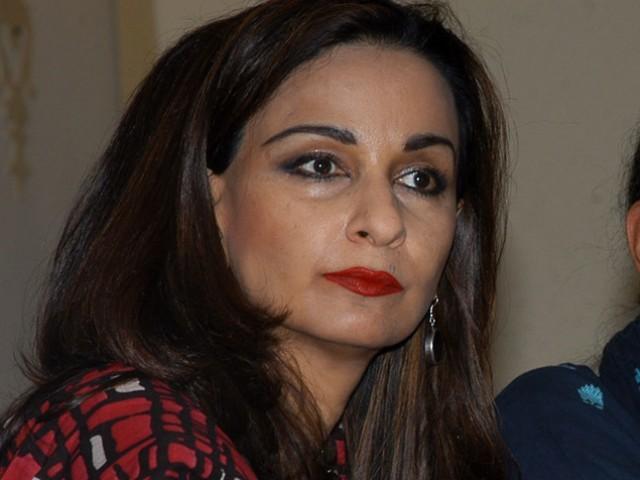Foreign Policy needs consistent messaging and national unity, says Sherry Rehman

Islamabad: Pakistan People’s Party leader Sherry Rehman, said that risks to Pakistan arise not just from a region in turmoil as well as global transitions, but also from the existing government’s refusal to streamline its own messaging, to democratize policy-making and inability to forge unity in Parliament at a time of growing peril to the country.
Responding to questions after a meeting of the Foreign Affairs Committee in the Senate, she said, Foreign and security policy, which only really work in a bedrock of national unity, are now routinely subject to unilateral and clashing pronouncements by cabinet members that expose the country to questions at home and biting criticism at international forums. It is also made weaker by a lack of multilateral consensus and irrational messaging.”
“Key Committees of Parliament remain out of the loop on major decisions which will impact the lives of every citizen of Pakistan, while momentous changes are announced unilaterally outside of meetings. On the crucial subject of talks with a banned, UN designated group such as the TTP there is a disturbing lack of policy cohesion. While one minister suggests that the TTP are hand-in-glove with terrorist groups nurtured in India against Pakistan, another says we can perhaps disarm and rehabilitate them if they renounce violence. The PM himself discloses existential, and what appear to be half-baked, changes in Pakistan’s policy on a foreign tv channel, instead of in Parliament. What political solutions he wishes to undertake with what they call the “good Taliban” need to be clarified, as do the questions that arise from the mass sacrifice Pakistani soldiers and civilians have made in unprecedented numbers while we fought terrorist groups to the tune of 80,000 lives? What constitutes criminality, and what would be the limits of the law for others, in this mindset? And what about the extremist ideologies that such groups are advancing? These concerns have unleashed a storm of questions in the country, where the Muslim world’s first and twice-elected prime minister, Benazir Bhutto was martyred at the hands of terrorist groups whom she challenged at her last jalsa (rally) for removing the flag of Pakistan from its soil; the questions and pain from the families of the children martyred in the APS massacre are equally strong, equally valid.”
“Nobody knows except a small coterie about what terms of engagement are being forged with any country that impacts Pakistan. While we agree that Pakistan should not be forced into a new strategic binary in any arising global bloc, we are yet to address how we should coherently navigate both the stresses arising out of the Asia-Pacific region, or the broader global order where Pakistan has commitments and exposure. Nobody has been taken on board about either the terms of engagement with the United States, with its vast influence on the IMF, multilateral agencies and even FATF, where Pakistan has been sitting on the grey list for 5 years despite passing a forest of legislation to supposedly meet compliance for clearance. If geo-stategic alignments and their politics are now driving multilateral policy towards Pakistan, then Parliament needs to know about it inside parliament, with all the attendant nuance that limits our space internationally and financially, and not from press talks. A few closed-door National Security Committee sessions are clearly not enough to address either the pace and scale of events challenging Pakistan, and in that too despite the sensitive nature of the subjects, the PM was conspicuously and consistently absent.
Rehman said “no loyal Pakistani will quietly accept the derailment of democracy, embodied in parliament, nor will they surrender their right to question sensitive terms of engagement with any country. The PPP used joint sessions of parliament to build strategic knowledge for parliament and then seek permission for a consensual course of action via representative committees of parliament. The messages, kinetic and other action that arose from such a process were taken seriously both by Pakistan as well as the rest of the world. This government only uses joint sessions to bulldoze bills it cannot legitimately pass or answer questions about. History has taught us painful lessons about unilateral decisions taken in covert haste. We do not have the capacity, either economic or otherwise to absorb foreign policy disunity, non-disclosure or the derailment of democracy, which is Pakistan’s default mode. It is time the danger-signs yielded change.”
The meeting was attended by Mustafa Nawaz Khokhar, Senators Molana Abdul Ghafoor Haideri, Faisal Javed, Anwaar-ul-Haq Kakar, Muhammad Tahir Bezinjo, Dr. Zarqa Soharwardi and Samina Mumtaz Zehri.





